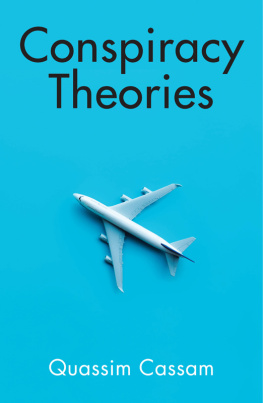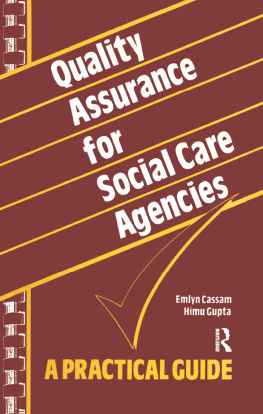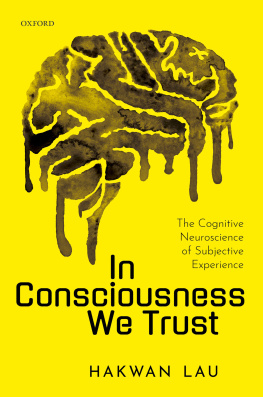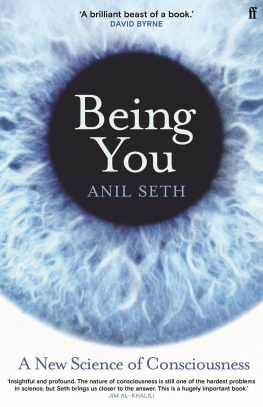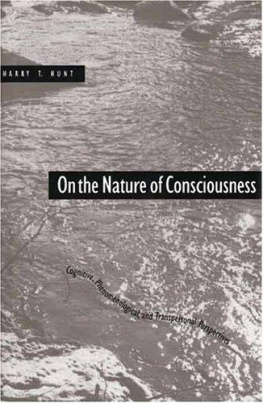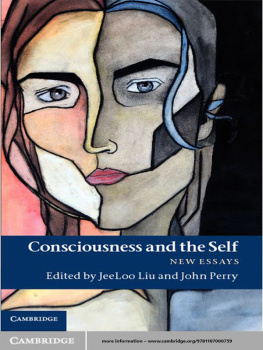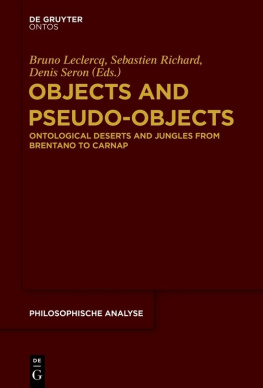Cassam, Quassim , Lecturer in Philosophy, University of Oxford, and Fellow and Tutor in Philosophy
Self and World
Publication date 1999 (this edition)
Print ISBN-10: 0-19-823895-9
Print ISBN-13: 978-0-19-823895-9
doi:10.1093/0198238959.001.0001
Abstract: The thesis of this book is that it is a necessary condition of self-consciousness that one is intuitively aware of oneself, qua subject, as a physical object. Intuitive awareness of oneself as a physical object involves various forms of bodily awareness in which one is presented to oneself, qua subject, as shaped, solid, and located. These forms of bodily self-awareness are required for self-consciousness because they are necessary for consciousness of one's own identity as the subject of different representations, and for consciousness of these representations as representations of an objective world. This account of self-consciousness helps undermine various forms of idealism and reductionism about the self.
Keywords: bodily awareness,intuitive awareness,objective world,representation,reductionism,self,self-consciousness

Great Clarendon Street, Oxford ox2 6dp
Oxford University Press is a department of the University of Oxford
It furthers the University's objective of excellence in research, scholarship,
and education by publishing worldwide in
Oxford New York
Auckland Bangkok Buenos Aires Cape Town Chennai
Dar es Salaam Delhi Hong Kong Istanbul Karachi Kolkata
Kuala Lumpur Madrid Melbourne Mexico City Mumbai Nairobi
So Paulo Shanghai Taipei Tokyo Toronto
Oxford is a registered trade mark of Oxford University Press
in the UK and in certain other countries
Published in the United States
by Oxford University Press Inc., New York
Quassim Cassam 1997
The moral rights of the authors have been asserted
Database right Oxford University Press (maker)
First published 1997
First published as paperback 1999
All rights reserved. No part of this publication may be reproduced,
stored in a retrieval system, or transmitted, in any form or by any means,
without the prior permission in writing of Oxford University Press,
or as expressly permitted by law, or under terms agreed with the appropriate
reprographcs rights organization. Enquiries concerning reproduction
outside the scope of the above should be sent to the Rights Department,
Oxford University Press, at the address above
You must not circulate this book in any other binding or cover
and you must impose this same condition on any acquirer
British Library Cataloguing in Publication Data
Data available
Library of Congress Cataloging in Publication Data
Cassam, Quassim.
Self and world / Quassim Cassam.
Includes bibliographical references.
1. Self (Philosophy). 2. Self-consciousness. 3. Self-perception.
I. Title.
BD450.C29 1996 126dc20 96-21021
ISBN 0-19-823540-2
ISBN 0-19-823895-9 (Pbk.)
end p.iv
Preface
My deepest intellectual debt is to P. F. Strawson, whose writings have had a profound influence on my thinking about a wide range of philosophical issues. I first became seriously interested in philosophy when I read his book Individuals as an undergraduate, so it is fitting that Strawson's work should figure so prominently in what follows.
In The Bounds of Sense, his brilliant commentary on Kant, Strawson claims that to be self-conscious one must conceive of oneself as a corporeal object among corporeal objects. This claim, together with Strawson's arguments for it, was the focus of the research leading up to this book. Although I have my doubts about these arguments, there is hardly a single page in the present work which has not been shaped by my engagement with them.
My central thesis is that it is not possible to give an adequate account of self-consciousness without acknowledging the importance of certain forms of bodily self-awareness which have received surprisingly little attention in the analytical tradition. My interest in the topic of bodily self-awareness was first stimulated by my colleague Michael Ayers, from whom I have learned a great deal over the years. His influence on this book, both through his writings and through his comments on an earlier draft, has been very considerable.
I have profited from many vigorous discussions with John Campbell, whose scepticism about my approach to self-consciousness has helped me to sharpen up my arguments. I am also grateful to an anonymous reader for Oxford University Press, and to Naomi Eilan, whose incisive comments on earlier drafts of the first four chapters were enormously helpful. Bill Brewer's comments on an earlier version of the discussion of immunity to error through misidentification in Chapter led to a significant change in the argument of this chapter. My response to Reductionism about persons in the final chapter owes much to discussions with Derek Parfit.
This book first began to take shape in 1993 in a class given at the University of California, Berkeley, and in subsequent classes in Oxford. I am grateful to the audiences on these occasions for some extremely stimulating responses, and to audiences in Birmingham, Cambridge,
end p.v
London, Oxford, Reading, Sheffield, and Stirling for many other helpful comments.
I would also like to thank the following:
The editor and publishers of the Review of Metaphysics for permission to use material from my paper 'Kant and Reductionism', Review of Metaphysics, vol. 43 (1989): 72-106, in Chapter . |
MIT Press for permission to use material from my paper 'Introspection and Bodily Self-Ascription', in J. Bermdez, A. Marcel, and N. Eilan (eds.), The Body and the Self (Cambridge, Mass., 1995), pp. 311-36, in Chapter . |
The Indian Council of Philosophical Research for permission to use material from my paper 'Transcendental Self-Consciousness', in P. K. Sen and R. R. Verma (eds.), The Philosophy of P. F. Strawson (New Delhi, 1995), pp. 161-78, in Chapter . |
Blackwell Publishers Ltd. for permission to use material from my paper 'Self-Reference, Self-Knowledge, and the Problem of Misconception', European Journal of Philosophy (December 1996), in Chapter . |
end p.vi


